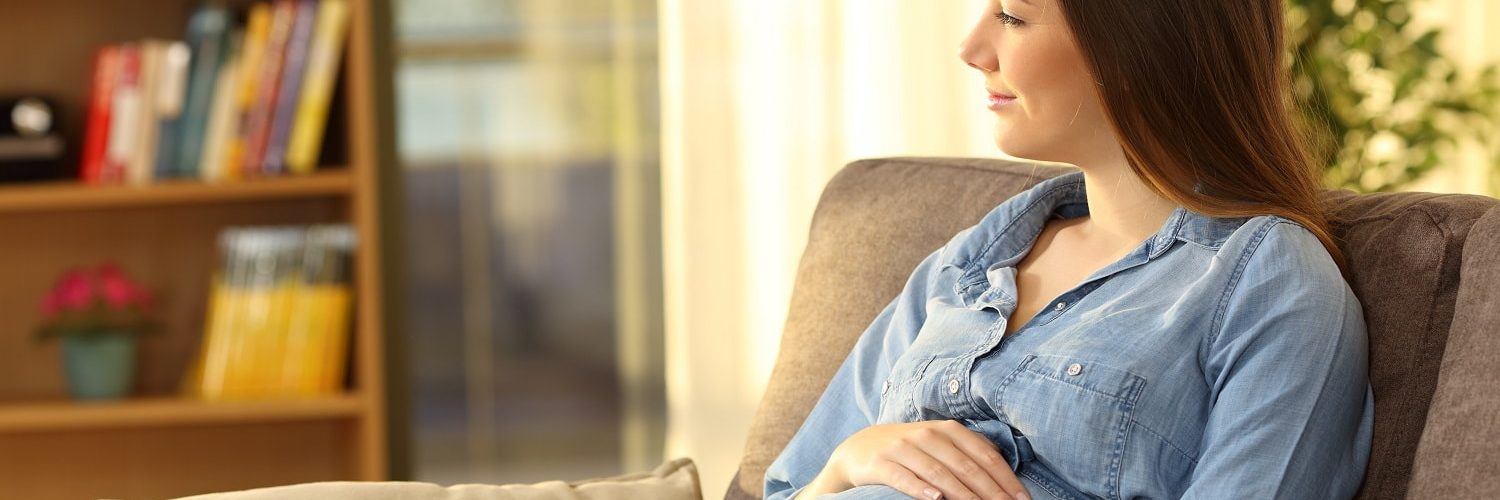
A woman’s fertile years cover the whole span between the onset of menstruation at puberty through to menopause. Within that timeline, some periods are better for getting pregnant than others. However, as a further complication in an affluent Western culture, other considerations come into play, such as societal norms and the competing imperatives of career, finances and relationships. Hence, the best age for getting pregnant is not necessarily a simple biologic fact.
In this article we look at this question from few different points of view, not only considering the best age to get pregnant but also the time that suits your life journey best. Along the way we will answer some common concerns such as how and for how long you can extend your fertility choices.
Best for your body
There is no doubt that when you are in your twenties-early thirties, your body is biologically in its prime decade for easy conception and full of energy to help you coping with the challenges of childbirth and the early years of sleep-deprived demands of caring for a young child.
Best for conception
The NHS estimates that in your twenties, as long as you are having regular unprotected sex, you stand a 92% chance of getting pregnant within a year, rising to 98% after two years. During this decade, your risk of miscarriage is low and you are less likely to have other problems that can affect your fertility or pregnancy (like high blood pressure and diabetes, which are more common in older women).
The younger the better?
Does this mean that in biological terms, the younger the better? Not necessarily. There are well-known associations between teenage pregnancy and poorer outcomes. Younger women are at higher risk of low birth weight and premature birth. Nonetheless, the reasons for these complications are not fully understood.
Taking the above into consideration, our twenties and early thirties would be the best biological time for getting pregnant. But what about you, your partner and other real-time considerations?
Best for you and your partner
As part of a higher educated and active society, women are delaying the age when they might start trying or wanting to conceive. Mother nature aside, many women will prioritize their careers or social life over forming a family, as a result of their financial or sentimental situation. As a result, many will end up deciding their best time to get pregnant is in their late thirties or even early forties. How to reconcile these opposing imperatives?
The preservation of fertility
Freezing the eggs allow women to “freeze time” and safeguard their future fertility. Impressive technological advances allow now for eggs to be stored at -196°, ensuring they remain in the same condition as when they were frozen. Likewise, women facing cancer or other treatment that could damage their future fertility, have now the possibility to start or complete their family following treatment and recovery by using previously frozen eggs. Have a look at our YouTube video about the vitrification of oocytes for a fascinating insight into how this is achieved.
Vitrification of oocytes
This technique involves an extremely rapid drop in temperature that results in the possibility to preserve the eggs effectively, as they retain all of the properties and the likelihood of resulting in a successful pregnancy that these had at the time of freezing. Back in 2005, IVI became the first European fertility clinic to use this technique that dramatically improved egg survival rates and became an important game changer for women’s fertility options. So if time can be “frozen”, the most relevant question should be when is the best time to preserve your fertility?
The best age to freeze your eggs
Women are born with millions of eggs that will decrease along a woman’s lifetime. Moreover, with the ageing process biological and genetic factors lead to a deterioration in the quality of these eggs. The cut-off where the effects of the aging process can already be seen is the age of 35. Therefore, freezing your eggs before this age will improve your chances of a successful conception in the future.
Best for your future children
As well as offering new freedoms in deciding on the best age for you to get pregnant, technological advances have a lot to offer in terms of protecting the health of your future children.
Carrier genetic test (CGT)
CGT allows us to identify the risk of an individual to transmit a recessive disease in the offspring. Recessive diseases can only be manifested in children when both parents are healthy carriers for the same genetic condition. Currently, one in each one hundred children born in the UK presents some type of genetic disease that cannot be cured. With the use of this test, couples have now the possibility to assess their risk of having a baby affected by a disease and in some of these cases, an adverse outcome can be prevented.
Pre-implantation genetic testing (PGT)
PGT is the genetic testing of embryos before the implantation, in order to select only those embryos that are healthy for transfer to the womb. This technique is used for couples at higher risk of transmitting genetic diseases, those with a history of miscarriages and older women, as PGT allows us to identify any genetic and chromosomal alterations in the embryos to minimize the risk of affected children being born.
Finding out more about IVI
We’ve seen some of the ways in which modern technology can work hand in hand with Mother Nature to give more freedom to women to decide for themselves when they would like to get pregnant. It’s your call. Come to see us to make your informed decision.
If you’d like to find our more, why not book a visit to our flagship London clinic? Or just fill in our contact form and we’ll be in touch.





Comments are closed here.